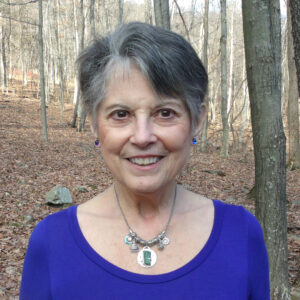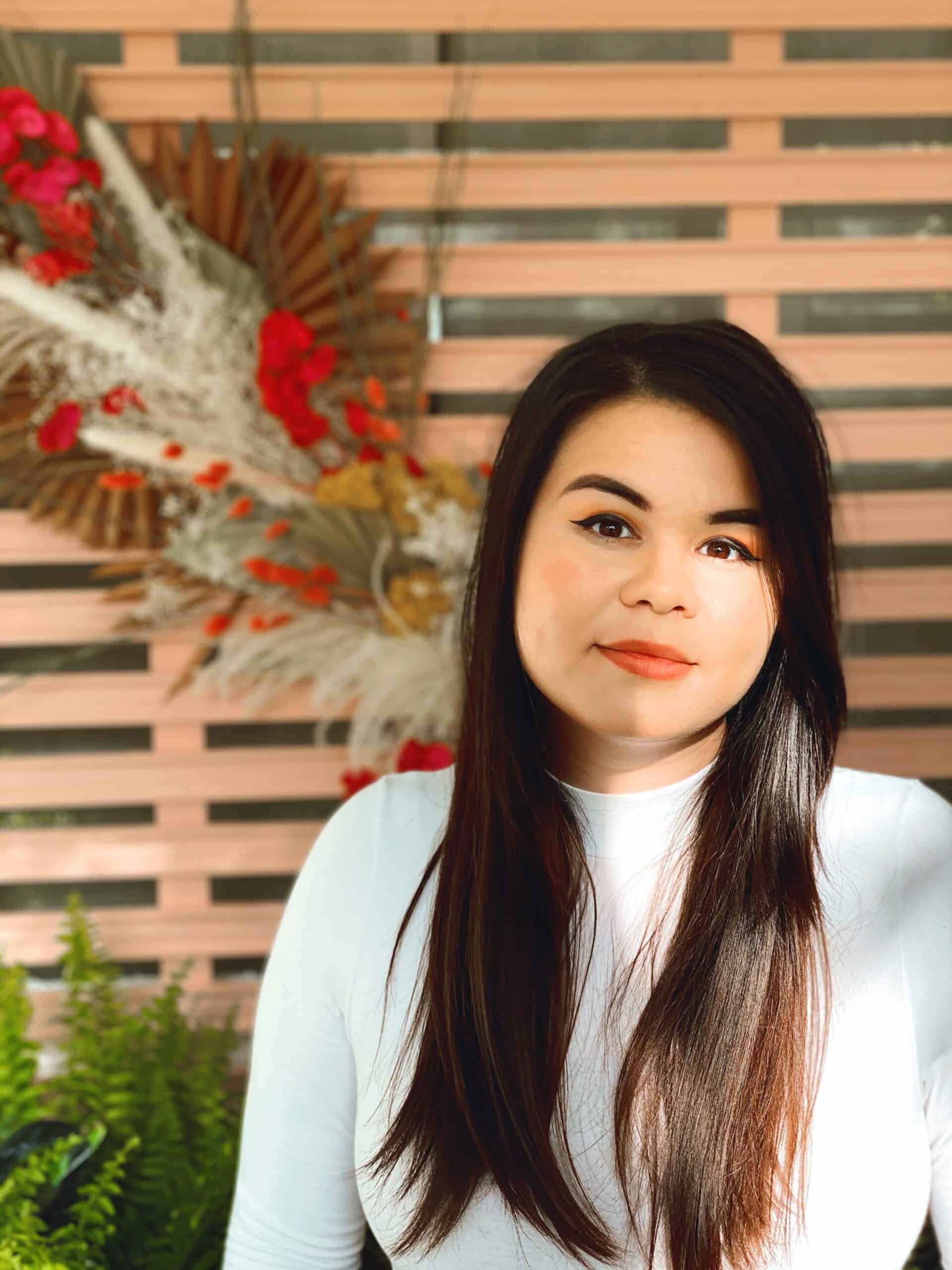Jess Testa is a passionate writer who has always harbored a deep desire to craft her own stories, despite a career spent weaving narratives for corporate and nonprofit sectors. With a Bachelor of Arts in English and a Masters in Communications, Jess finally turned her long-held dream into reality, resulting in her debut novel, “The Destined Road.” Her journey, marked by perseverance and self-discovery, serves as a beacon of inspiration for aspiring writers. From initial struggles to finding her stride during NaNoWriMo 2023, Jess’s story is a testament to the power of unwavering dedication and the magic that can happen when you trust in your own creativity. Join us as Jess shares her insights, challenges, and the rewarding moments that shaped her writing career.
Can you tell us a little about your background and what led you to write “The Destined Road”?
I have a Bachelor of Arts in English and a Masters in Communications. I only ever utilized those skills to tell stories for the corporate and nonprofit sectors despite always having a gnawing urge to write my own. About six years ago, I was sitting in a coffee shop with the intent on starting a book. I wasn’t in the best place in life, but I wanted to try something. So, I wrote a note on my iPad about the idea of a world split in two, and that’s about where it ended. It wasn’t until about two years ago that I earnestly gave the story more thought. So, NaNoWriMo 2022 I tried – and failed.
The first two and a half chapters were a slog to get through, the inspiration wasn’t really there, and it trailed off for a few months afterward. NaNoWriMo 2023 comes around, and something clicks. I couldn’t tell you what, but I felt an inexplicable drive to really dive into the story I had been messing around with. Then it happened, November 2023 (same month as NaNo) I got a call that I’ve been laid off (tech industry) and I suddenly found myself with an abundance of time, and a story that was actually taking off – so I wrote, feverishly. I finished the first draft of the story at the eleventh hour of New Year’s Eve.
What inspired you to bring a fresh perspective to classic fantasy with your book?
I love the classics for the genre. The Lord of the Rings, Way of Kings, etc. The feeling that I got from rewatching LOTR for the hundred and eleventieth time was something that I wanted to be able to do. I wanted this book to look and feel like a story that has been around for ages, but the tale, for you all, is brand new.
How did your experiences in Seattle influence your writing and creative process?
Being in a scene like Seattle, you’re surrounded by quiet creativity all the time. People working in coffee shops, the serenity of the climate and environment, it all adds to this very (if I may say) fantastical element of living here. There’s this hushed beauty about Seattle despite it being a major city that I think let me thrive as an author.
What were some of the biggest challenges you faced while writing “The Destined Road”?
Mostly it was not being able to get out of my own way. The constant struggle of looking to create a story “unique enough” and “brilliant enough” was the focus for the beginning of my journey with it. Deciding that it was those things (by virtue of it not having been written before) was what let me overcome those challenges.
Can you share a moment or experience that was particularly rewarding during the creation of your book?
Learning how to be an indie author! I struggled in the beginning to figure out the path that I wanted. Figuring out the freedom of indie publishing (though it is an incredible amount of work) was rewarding in and of itself.
A more specific example would be having learned how to format my book in InDesign – that was a very cool experience to be able to create the actual look of my novel the way I wanted.
How do you balance your personal life and writing career, especially during challenging times?
Well, I feel I was lucky. I had this weird opportunity with being unemployed that allowed me to solely focus on my writing. I had all the hours of the day to work on it, and I did. All of it was a challenging time, I moved during the process as well which is always stressful. I am most fortunate to have an amazing partner who was able to carry us during that time, and people in my life who were incredibly supportive.
What advice would you give to other women who aspire to write and publish their own books?
Do it. Let no one stop you. Learn everything and anything you can do to make it come true and ask for help when you need it.
How do you overcome writer’s block or creative slumps?
I forget where I saw this, but someone said: “When you hit a wall or a plot hole, stop, because your subconscious is always working on your story, and it will figure out everything for you in the background until you’re ready to write again.” That changed everything for me. I began to simply trust myself, my creativity, and my intuition to step away without feeling bad about it.
Are there any authors or books that have significantly influenced your writing style?
Tolkien is the most obvious for the genre, but others include Susanna Clarke, John Gwynne, Tamsyn Muir, and Kurt Vonnegut.
How important do you think it is for women to have a voice in the fantasy genre?
Incredibly important. I think when women try to write fantasy it’s often immediately relegated to being “lesser” or “just romantasy”. I have nothing against romantasy, I think it’s an amazing and complex genre, but it was frustrating to me when people would ask “well is your book another romance?” (hint: it is not, but so what if it was?). So, I think, having women write in the fantasy genre at all is vital.
Can you share some insights on how you developed the characters and world in “The Destined Road”?
I talk about this a bit on my YouTube channel “Writer Makes Videos”, but I went back and forth between having the characters inform the world and having the world inform the characters. When I started, I drew a map. I’m a very visual learner so this worked best for me. I began plugging in landscapes and things that I felt were interesting and then I would stop and ask myself “well what kind of person lives here?”. I knew I was going to have elves and dwarves roaming around, but then as I figured out where they all resided, it began to tell a tale of war and distrust, years of separation, and events that led them to where they are presently in the story.
What role do you think social media plays in the success of modern authors?
I don’t really want to give social media that much credit, but you can’t deny the accessibility it provides to those who cannot afford a marketing team, or especially indie authors who don’t have a huge publishing team on their side. I mean, I found you all through social media and this is an amazing opportunity! I’ll say this, the utilization of social media to build a community is where success happens. Fighting and constantly seeking virality (at least for me) isn’t it. Making genuine connections, helping and lifting other authors, that’s where the magic of social media is.
How do you handle criticism and feedback on your work?
I love it! My goal with TDR was to get as much feedback as I could. I had never written a creative piece this large or complex before, and I knew it was bound to have problems. I found people I trusted to give me advice and the story is undoubtedly better than it would have ever been without their input. Criticism when constructive is gold.
What future projects or books do you have planned?
The trilogy! I have two more books in the “Instruments of Fate” series planned.
What legacy do you hope “The Destined Road” will leave for its readers?
A classic you keep on your shelf for years, share, and nerd about, and every once in a while, you find comfort in going back to.
https://www.youtube.com/@writermakesvideos







This first book is exceptionally written. I can hardly wait for the second book. Great interview and this author gives so much inspiration for future writers. It looks like she has a lot to offer and I hope she keeps on writing